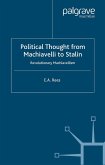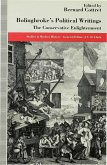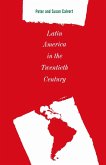What was 'revolutionary' in the process by which the thirteen North American colonies affirmed their independence? What is it about that 'revolution' that still colours the way in which Americans engage in politics? Dick Howard, author of The Marxian Legacy, Defining the Political and The Politics of Critique uses a similar framework to look at America. What is the political, how does a critique of the present become a politics for the future, and especially, what becomes of radical politics once it abandons the economistic promises of Marxism? This book originally published in French, as part of the political debate leading up to the bi-centenary of the French Revolution, was awarded the 'Prix Littraire de l'Association France-tats-Unis.' The present English edition includes a new Introduction and an Afterword relating the author's argument to the two crucial novelties of American politics: the invention of a party system, and the institution of judicial review.
Bitte wählen Sie Ihr Anliegen aus.
Rechnungen
Retourenschein anfordern
Bestellstatus
Storno








